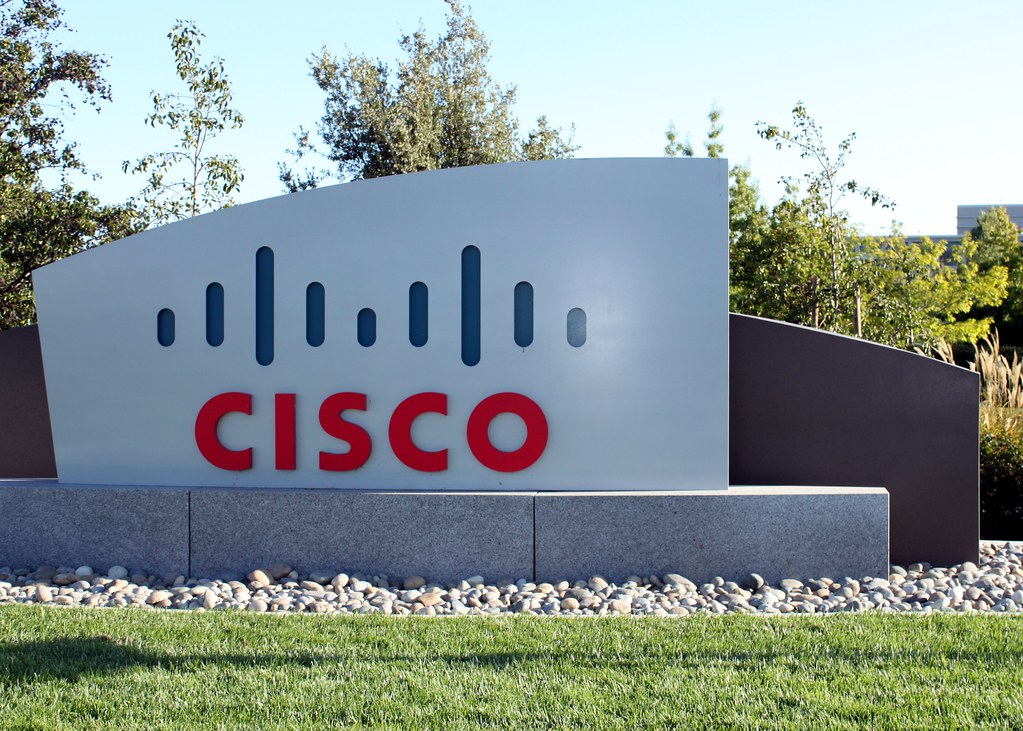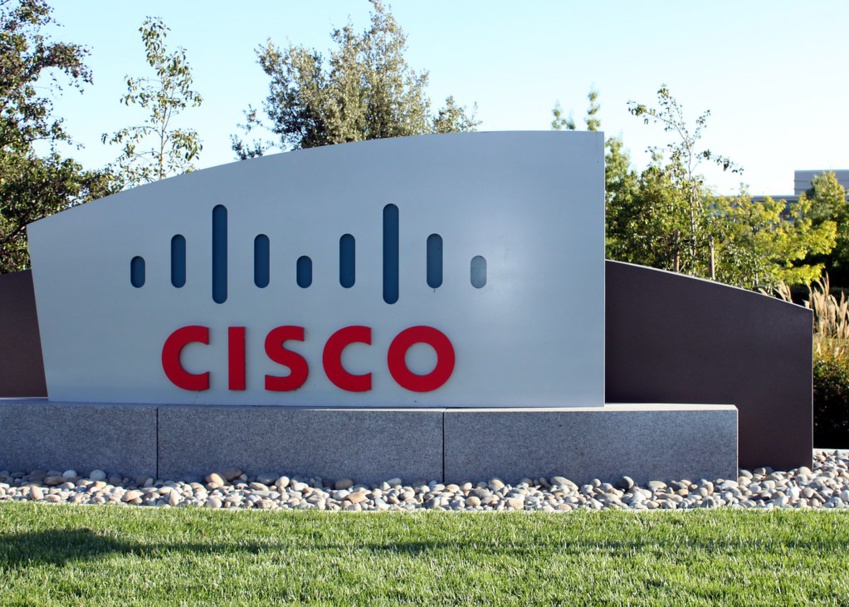We rely heavily on the energy grid for nearly all aspects of modern life. However, the grid faces a multitude of challenges, from aging infrastructure and rising demand to cyber threats and the growing complexity of incorporating renewable energy sources. Digital innovations are vital in addressing these issues, and Cisco is contributing significantly to creating a more sustainable, secure, and intelligent energy future.
“Energy and utilities are foundational infrastructure for any country,” stated Kelsi Doran, Cisco's head of sustainability strategy and transformation. "As cyber threats become increasingly sophisticated, they pose a significant risk to the energy grid, particularly when outdated systems are in use, potentially compromising energy reliability and security."
According to the U.S. Department of Energy, much of the country’s electric grid was constructed during the 1960s and 1970s, with over 70% of transmission lines now over 25 years old. As these systems near the end of their operational life, utilities must adapt to growing demands, increased threats, and climate-related disruptions such as storms, floods, and wildfires, making the shift to smarter grids critical.
Forward-thinking utilities are increasingly adopting digital technologies to enhance their operations. “Digital solutions provide greater visibility into operational networks, helping utilities manage supply and demand more effectively,” Doran explained. “These technologies not only help accelerate the transition to clean energy but also support utilities’ digital business transformation.”
One example of this forward-thinking approach is CPFL Energia, one of Brazil's largest energy companies, headquartered in São Paulo. The company is deeply committed to transitioning to a digital and renewable energy future, particularly focusing on wind power. Security is also a top priority for CPFL Energia. Emerson Cardoso, the company’s chief information security officer, noted that energy companies in Brazil are frequent targets for hackers, but Cisco’s continuous support and innovations have been invaluable.
Renewable energy sources such as wind, solar, and geothermal will be essential in achieving net-zero goals, yet they come with unique challenges. Unlike traditional energy sources that are centralized, renewable sources are often more decentralized and distributed across large, sometimes remote, areas. This shift requires enhanced networking, IoT sensors, and AI-driven tools to ensure grid stability and prevent outages. AI and machine learning can help optimize energy generation and storage, making it easier to balance supply with demand, even when renewable sources are intermittent.
Doran emphasized that renewable energy production is not as predictable as fossil fuels. “Energy generation depends on when the sun shines or the wind blows, so having the right digital tools to adjust supply to meet demand is crucial. This is where digital technology shines, giving us insight into energy consumption and enabling the appropriate supply to meet demand."
Securing these distributed energy systems is equally important, as cybercriminals are quick to exploit any vulnerabilities. Denise Lee, Cisco’s vice president of the Engineering Sustainability Office, highlighted that excessive complexity from multiple vendors can further undermine security. Cisco’s comprehensive portfolio ensures security is embedded at every stage, enabling better protection across interconnected systems.
Cisco’s long-standing partnerships in the energy sector, combined with its deep experience, provide utilities with the products, services, and support needed to navigate this critical moment in the industry’s evolution. For instance, ScottishPower Renewables has worked closely with Cisco to develop a reliable and secure network infrastructure for its wind operations in the North Sea. Cisco’s technology has proven to be resilient even in extreme conditions, such as flooding in Brazil, where its equipment continued to function despite being submerged in water.
As energy demands rise, particularly with the growing use of AI and other power-intensive technologies, Cisco remains committed to driving innovation and supporting the energy sector. With expertise in networking, security, and automation, Cisco is poised to play a key role in creating a cleaner, more resilient, and secure energy future.
Doran pointed to Cisco’s investments in emerging technologies, such as AI, quantum computing, and carbon capture, as part of its broader commitment to a sustainable future. As utilities continue to face evolving challenges, Cisco’s comprehensive solutions can help modernize and secure the grid, from the control center to the last-mile networks that connect consumers.
As the world grapples with climate change and increasing energy demands, the need for smart, modern grids is more urgent than ever. “Many grids around the world still lack modern technology,” noted de Wysocki, Cisco’s senior vice president and chief sustainability officer. “With extreme weather events and growing reliance on the grid, Cisco can play a critical role in enabling a secure, intelligent, and clean energy future.”
“Energy and utilities are foundational infrastructure for any country,” stated Kelsi Doran, Cisco's head of sustainability strategy and transformation. "As cyber threats become increasingly sophisticated, they pose a significant risk to the energy grid, particularly when outdated systems are in use, potentially compromising energy reliability and security."
According to the U.S. Department of Energy, much of the country’s electric grid was constructed during the 1960s and 1970s, with over 70% of transmission lines now over 25 years old. As these systems near the end of their operational life, utilities must adapt to growing demands, increased threats, and climate-related disruptions such as storms, floods, and wildfires, making the shift to smarter grids critical.
Forward-thinking utilities are increasingly adopting digital technologies to enhance their operations. “Digital solutions provide greater visibility into operational networks, helping utilities manage supply and demand more effectively,” Doran explained. “These technologies not only help accelerate the transition to clean energy but also support utilities’ digital business transformation.”
One example of this forward-thinking approach is CPFL Energia, one of Brazil's largest energy companies, headquartered in São Paulo. The company is deeply committed to transitioning to a digital and renewable energy future, particularly focusing on wind power. Security is also a top priority for CPFL Energia. Emerson Cardoso, the company’s chief information security officer, noted that energy companies in Brazil are frequent targets for hackers, but Cisco’s continuous support and innovations have been invaluable.
Renewable energy sources such as wind, solar, and geothermal will be essential in achieving net-zero goals, yet they come with unique challenges. Unlike traditional energy sources that are centralized, renewable sources are often more decentralized and distributed across large, sometimes remote, areas. This shift requires enhanced networking, IoT sensors, and AI-driven tools to ensure grid stability and prevent outages. AI and machine learning can help optimize energy generation and storage, making it easier to balance supply with demand, even when renewable sources are intermittent.
Doran emphasized that renewable energy production is not as predictable as fossil fuels. “Energy generation depends on when the sun shines or the wind blows, so having the right digital tools to adjust supply to meet demand is crucial. This is where digital technology shines, giving us insight into energy consumption and enabling the appropriate supply to meet demand."
Securing these distributed energy systems is equally important, as cybercriminals are quick to exploit any vulnerabilities. Denise Lee, Cisco’s vice president of the Engineering Sustainability Office, highlighted that excessive complexity from multiple vendors can further undermine security. Cisco’s comprehensive portfolio ensures security is embedded at every stage, enabling better protection across interconnected systems.
Cisco’s long-standing partnerships in the energy sector, combined with its deep experience, provide utilities with the products, services, and support needed to navigate this critical moment in the industry’s evolution. For instance, ScottishPower Renewables has worked closely with Cisco to develop a reliable and secure network infrastructure for its wind operations in the North Sea. Cisco’s technology has proven to be resilient even in extreme conditions, such as flooding in Brazil, where its equipment continued to function despite being submerged in water.
As energy demands rise, particularly with the growing use of AI and other power-intensive technologies, Cisco remains committed to driving innovation and supporting the energy sector. With expertise in networking, security, and automation, Cisco is poised to play a key role in creating a cleaner, more resilient, and secure energy future.
Doran pointed to Cisco’s investments in emerging technologies, such as AI, quantum computing, and carbon capture, as part of its broader commitment to a sustainable future. As utilities continue to face evolving challenges, Cisco’s comprehensive solutions can help modernize and secure the grid, from the control center to the last-mile networks that connect consumers.
As the world grapples with climate change and increasing energy demands, the need for smart, modern grids is more urgent than ever. “Many grids around the world still lack modern technology,” noted de Wysocki, Cisco’s senior vice president and chief sustainability officer. “With extreme weather events and growing reliance on the grid, Cisco can play a critical role in enabling a secure, intelligent, and clean energy future.”


 Smart Energy Grids: Cisco’s Role in Securing the Future of Clean Energy
Smart Energy Grids: Cisco’s Role in Securing the Future of Clean Energy





 Companies
Companies